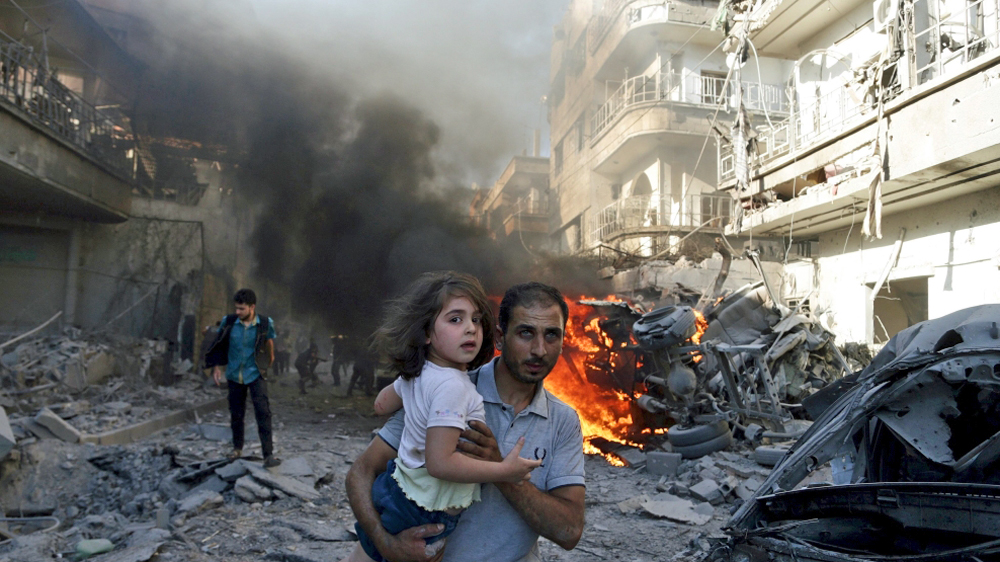
Lying on his political deathbed, Barack Obama acts according to the principle, “If I can’t have peace, no one will.” In any case, his decision to lift all restrictions on the supply of ammunition and weapons to the Islamic State, an organization banned in Russia, leads one to such a conclusion.
The figures of power influencing the 44th American president, it seems, are still counting on the war, and Obama has merely legalized their intentions. And they still make no secret of those intentions.
Back in February 2013, a prominent owner of global capital openly stated in an article that a world war might be the most effective solution to industrialized society’s deep crisis of expanded production. The article also raised the challenge of consolidating the resources of independent countries through the destruction of their statehood.
Politics is a concentrated expression of economics. What have we seen lately? Afghanistan, Iraq and Libya have lost their statehood through outbreaks of war, and the Anglo-Saxons have taken control of their resources. These “conquests of democracy” are the essence of the rent wars that the customers of global or regional military engagements quarrel over.
The same thing was expected in Syria, but Russia intervened.
The attempt to upend the country with the help of a so-called moderate opposition failed. A decision was made to strengthen armed gangs of terrorists. A classic regional war began — a regional war — not a civil war, as the Americans have been trying to convince the world.
Then more of the same! To help insurgent militant groups, several thousands of soldiers and military advisers from British and American private military companies were sent to assist the insurgents. It did not help.
A decision was made to send as many as 5,000 U.S. Army Special Forces to Syria. Once again, this did not help.
Moreover, the situation in Aleppo began to turn bad for Washington and London, which fought against Assad with the use of terrorist groups. Many advisers and soldiers from British private military contractors wound up completely encircled.
There were two ways out of the situation: Either get them out of this quandary using a ceasefire, or carry out a strike with the U.S.-led coalition’s Air Force in order to destroy the evidence or, as we like to say, cover things up. A ceasefire was achieved, so the process of withdrawing the mercenaries has been in full swing.
And precisely when Moscow agreed to end combat operations, without which the success of the military operation in Aleppo would not be possible, Obama pivoted toward the path of a protracted war by lifting restrictions on the supply of weapons.
Why act so hastily? There’s no time! On the one hand, the situation in Aleppo is compounding, while on the other hand, as Jan. 20 approaches it is necessary to make the time to bring about peace.
What might Obama’s decision to lift all the bans on supplying weapons to Syria mean?
One of the possible scenarios, unfortunately, is that their military front will be expanded. At the same time, U.S. allies will supply the insurgents right away with man-portable air-defense systems for the fight against our aircraft. Then they’ll supply them with multiple-launch rocket systems to destroy the Syrian army’s personnel and equipment. And they’ll provide much more, including, for example, air strikes against the Syrian army using the tactical nuclear weapons stationed at the Incirlik Base in Turkey.
Why?
This can not only radically change the situation in the war but also, if necessary, throw the war out of the Syrian capsule and onto the rest of the Middle East.
It’s necessary to understand that no one wants to leave us alone in Syria. London views the buildup of our military bases in the country as a strategic humiliation. After all, Britain ran the show there for a long time, controlling important waterways, straits, canals and sea lanes. The Anglo-Saxons won’t retreat so easily.
The reformatting of the world in the interest of global capital, which in the end will get the rent income of war, has begun. And the Kremlin’s apprehensions about the lifting of restrictions on the supply of weapons to Syria, voiced today by the president’s Press Secretary Dmitri Peskov, are clear: Right before our eyes, yet another attempt is being made to make this Middle Eastern country the detonator for tectonic shifts in the global arena.

Leave a Reply
You must be logged in to post a comment.